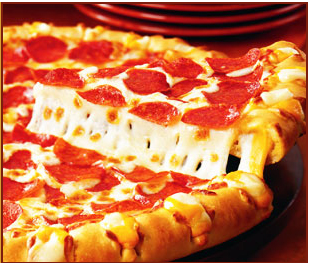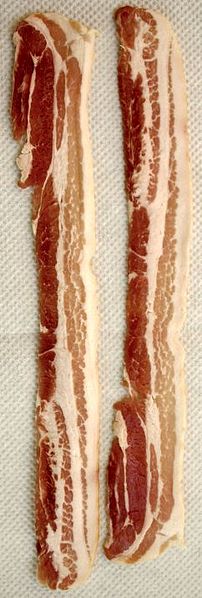From the NYT:
KASTELI,
Greece — Dr. Michalis Stagourakis has seen a transformation of his pediatric practice here over the past three years. The usual sniffles and stomachaches of childhood are now interspersed with far more serious conditions:
diabetes,
high blood pressure, high
cholesterol. A changing
diet, he says, has produced an epidemic of
obesity and related maladies.
Small towns like this one in western Crete, considered the birthplace of the famously healthful Mediterranean diet — emphasizing olive oil, fresh produce and fish — are now overflowing with chocolate shops, pizza places, ice cream parlors, soda machines and fast-food joints.
The fact is that the Mediterranean diet, which has been associated with longer life spans and lower rates of heart disease and cancer, is in retreat in its home region. Today it is more likely to be found in the upscale restaurants of London and New York than among the young generation in places like Greece, where two-thirds of children are now overweight and the health effects are mounting, health officials say.
“This is a place where you’d see people who lived to 100, where people were all fit and trim,” Dr. Stagourakis said. “Now you see kids whose longevity is less than their parents’. That’s really scaring people.”
That concern has been echoed by the Food and Agriculture Organization of the United Nations, which said in a report this summer that the region’s diet had “decayed into a moribund state.”
“It is almost a perfe ct diet, but when we looked at what people were eating we noticed that much of the highly praised diet didn’t exist any more,” said the report’s author, Josef Schmidhuber, a senior economist at the food organization. “It has become just a notion.”
ct diet, but when we looked at what people were eating we noticed that much of the highly praised diet didn’t exist any more,” said the report’s author, Josef Schmidhuber, a senior economist at the food organization. “It has become just a notion.”
Greece, Italy, Spain and Morocco have even asked Unesco to designate the diet as an “intangible piece of cultural heritage,” a testament to its essential value as well as its potential extinction.
The most serious effects of its steady disappearance are on people’s health and waistlines. Alarmed by the trends, the Greek government has been swooping into schools in villages like Kasteli annually for the past few years to weigh children and lecture them on nutrition. The lessons include a food pyramid focused on the Mediterranean diet.
It is an uphill battle, though. This spring, a majority of children who were tested at the elementary school of this sleepy port town of 3,000, also known as Kissamos, were found to have high cholesterol. “It was the talk of the school,” said Stella Kazazakou, 44. “Instead of grades, the moms were comparing cholesterol levels.”
In Greece, three-quarters of the adult population is overweight or obese, the worst rate in Europe “by far,” according to the United Nations. The rates of overweight 12-year-old boys rose more than 200 percent from 1982 to 2002 and have been rising even faster since.
Italy and Spain are not far behind, with more than 50 percent of adults overweight. That compares with about 45 percent in France and the Netherlands.
In the United States, 66 percent of adults older than 20 were overweight in 2004, and 31.9 percent of children 2 through 19 were overweight in 2006, although childhood statistics are compiled somewhat differently in different countries.
In Greece, the increase in the number of fat children has been particularly striking, parents and doctors say.
“Their diet is totally different than ours was,” said Soula Sfakianakis, 40, recalling breakfasts of goat milk, bread and honey. Her son, Vassilis, a husky 9-year-old who had a chocolate mustache from a recently conquered ice cream cone, said he preferred cornflakes in the morning and steak or macaroni and cheese for dinner.
Dr. Antonia Trichopoulou, a professor of epidemiology at the University of Athens Medical School, said the problem had grown acute with the spread of supermarkets and, especially, convenience foods.
“In the last five years it’s become really bad,” she said. “The children are all quite heavy. The market is pushing a lot, and parents and schools seem unable to resist.”
Advertising geared toward children has invaded Greece full force, stretching into the countryside. On television there are commercials for chips; at supermarkets there are stands of candy. Last year, Coca-Cola sponsored a play about healthful eating.
But facing both aggressive convenience food marketing and obesity for the first time, many rural residents here have little resistance to or knowledge of the dangers.
Dr. Trichopoulou said that some older people might have been tolerant of childhood chubbiness because Greece had for so long been a poor nation where hunger was a recurrent problem.
Outside one of Kasteli’s several ice cream parlors, Argyro Koromylla said, “You don’t want your child complaining or feeling left out, so you give him what he wants.” Her son Manolis, 12, was finishing a cone, a large T-shirt draped over his stocky frame.
Dimitris Loukakis, 44, said he was so concerned about changing eating habits that he had bought a farm to grow traditional crops himself. Sitting at an outdoor cafe by the beach, he and his wife drank iced coffee while their chunky 9-year-old daughter, Maria, nibbled on spinach pie and glumly drank water.
“I’m on a diet; I have to eat less,” Maria piped up, noting that the local school had recently started to teach students about nutrition.
“Some diet,” interjected her father. “We’re trying to keep her off sugar now. If we continue like this, we’re going to become like Americans, and no one wants that.”
The traditional diet, low in saturated fats and high in nutrients like flavonoids, was based on vegetables, fruit, unrefined grains, olive oil for cooking and for flavoring, and a bit of wine — all consumed on a daily basis.
Fish, nuts, poultry, eggs, cheese and sweets were weekly additions. Red meat, refined sugar or flour, butter and other oils or fats were consumed rarely, if at all.
Research on the diet took off in the 1990s, as scientists noted that people in Mediterranean countries lived longer and had low rates of serious disease despite a penchant for patently unhealthy habits like smoking and drinking. But that protection is now seen as rapidly eroding.
A generation ago, the typical diet in all Mediterranean countries complied with nutritional recommendations by the World Health Organization that less than 10 percent of calories come from saturated fats and that less than 300 milligrams of cholesterol be consumed per day.
Today, the typical diet in all of the countries exceeds those limits significantly, Dr. Schmidhuber said. In Greece, average daily cholesterol consumption has risen to 400 milligrams from 190 in 1963. Germany’s is similar. In Portugal, consumption went to 460 milligrams from 155.
In 2002, a British study found that 31 percent to 34 percent of 12-year-olds in Greece were overweight — a 212 percent increase since 1982 — and “it has gotten worse, much worse, since then,” Dr. Stagourakis said. One-quarter of all children on Crete have cholesterol problems, he said, and seeing children with diabetes and high blood pressure is no longer uncommon.
Unlike in the United States, where obesity is more pronounced in adults than in children, in the Mediterranean region the rise in weight problems has been more common among the young. Parents’ taste buds still tend to hew to a more traditional diet.
A survey by the World Health Organization last year of statistics from various countries found that among children in the first half of primary school, 35.2 percent in Spain were overweight — the worst rate — and 31.5 percent in Portugal. The lowest rates were in Slovakia (15.2 percent), France (18.1 percent) and Switzerland (18.3 percent). Greece was not included.
Being overweight, particularly being obese, is associated with a wide variety of medical problems, like diabetes and liver disease. While heavy children may not suffer immediate health effects, they are statistically far more likely to grow into obese adults than their trimmer classmates. And in adulthood the conditions can be lethal.
On traditional Crete, there was no need for calorie counting or food pyramids. People were poorer then, so their food was mostly homegrown, and producing it required more physical activity.
“We ate what we grew and what we could make from it,” said Eleni Klouvidaki, 46, who lives in Kalidonia, a mountain village outside Kasteli, and describes her preferred diet as “whatever’s green.” On a recent day she prepared a meal of her staple mix of zucchini, tomatoes and other vegetables, and tossed it all in homemade olive oil. Now and again, she augments this dish with beans, or meat from her chickens or rabbits.
But she said that as more women worked and shops had moved in, the food culture had changed. “We’ve entered an era of convenience,” she said. “Even in this rural village, the diet is very different than it used to be.”
She, too, occasionally grabs dinner in town, and four nights a week her son, who works in a car repair shop, drives to a fast-food restaurant. “They don’t deliver here yet,” she explained.

























